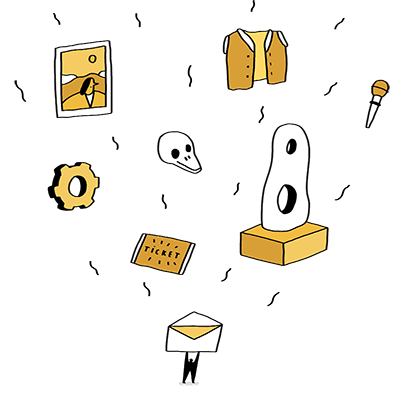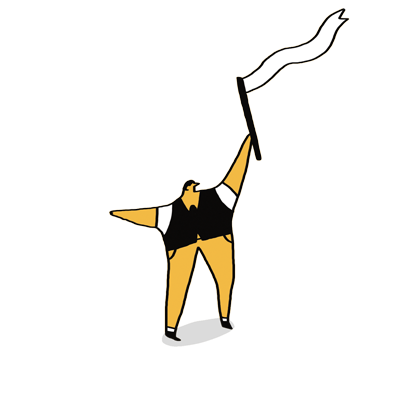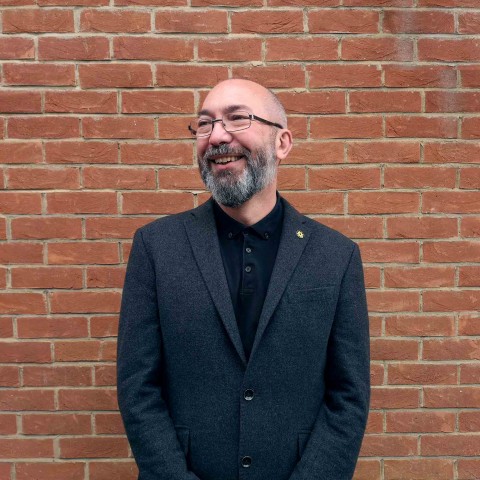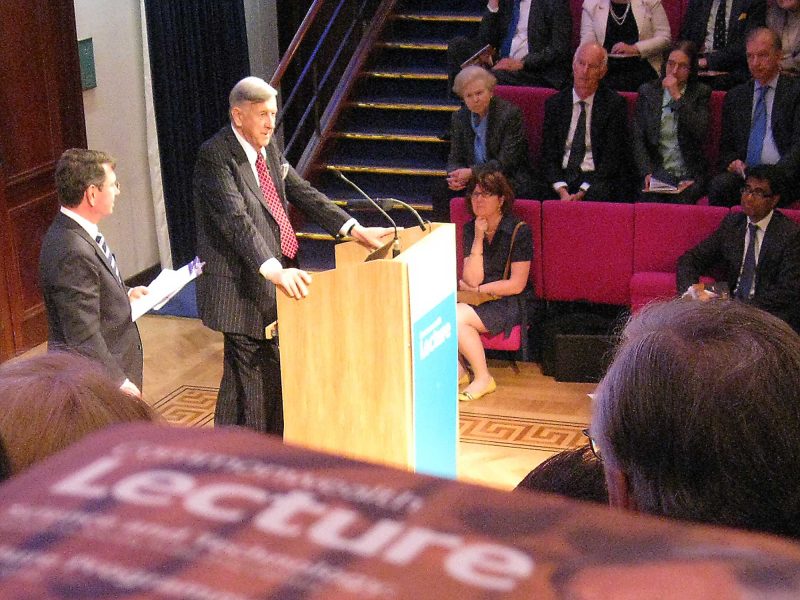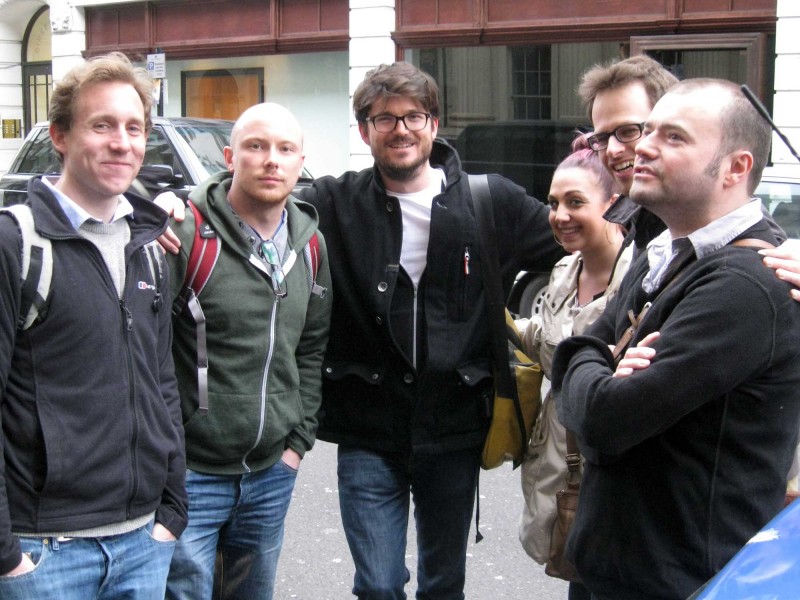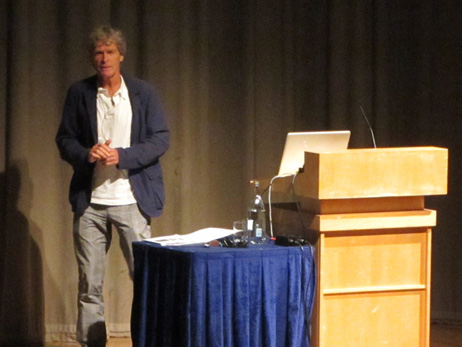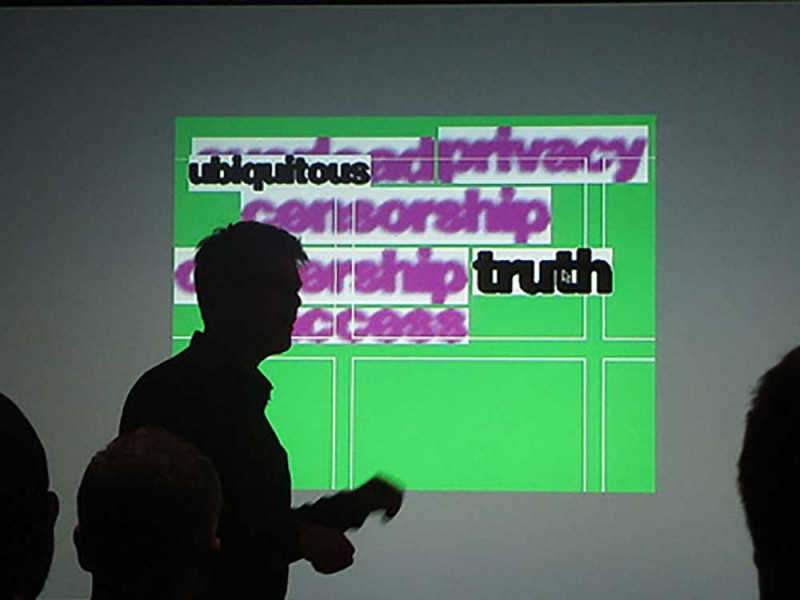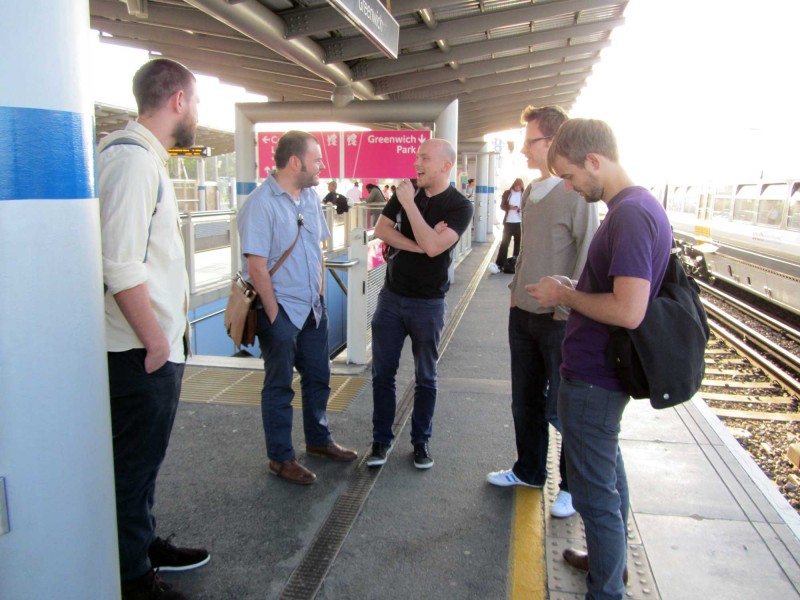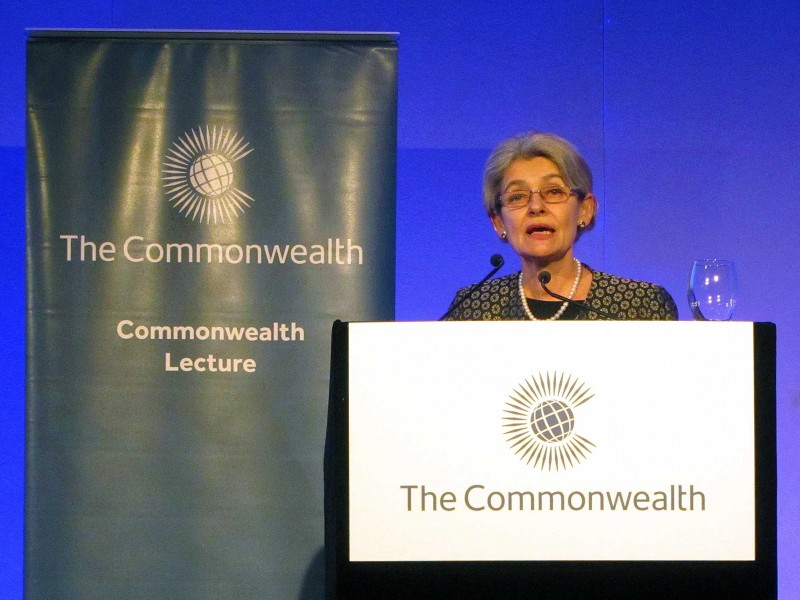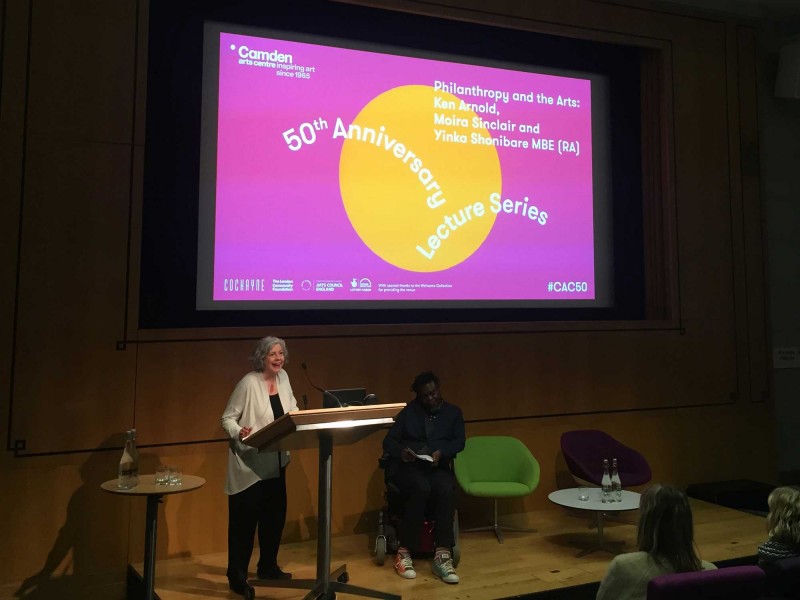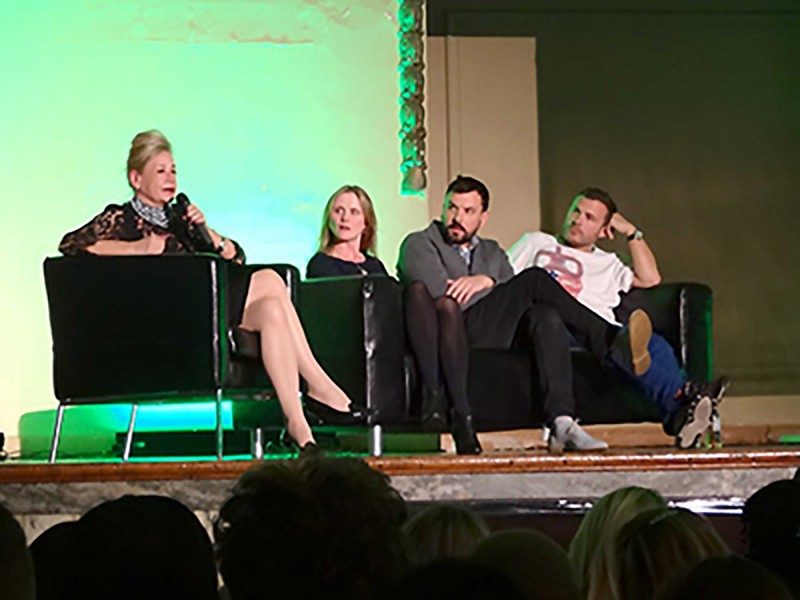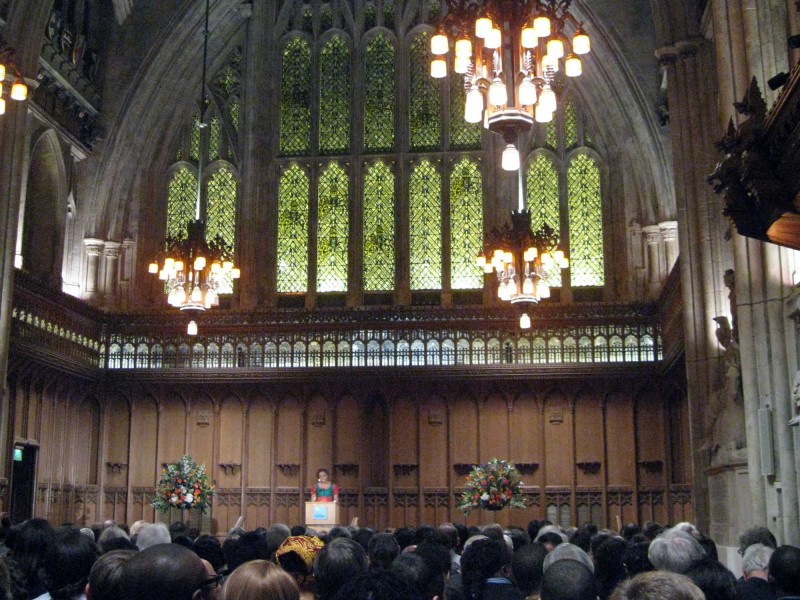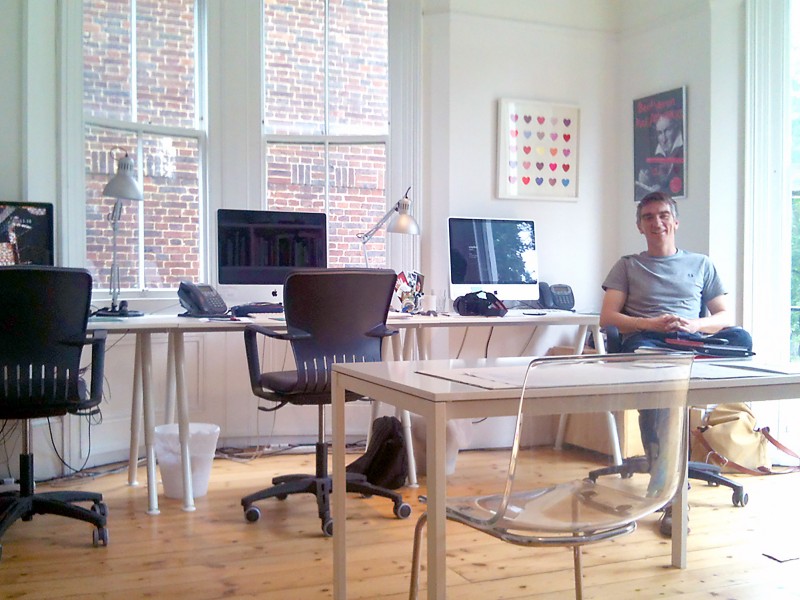In the room where the Victorians explained and codified science, the Science Museum Director Roger Highfield chatted with Walter Isaacson, the biographer of Steve Jobs.
Walter Isaacson at the Royal Institution
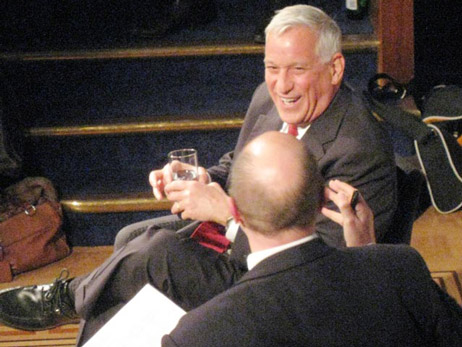
Today in that room was the biographer of both Albert Einstein and, subject of tonight’s talk, Steve Jobs. And, in the audience was Jimmy Wales, the co-founder of Wikipedia.
Walter Isaacson spoke (without notes) for the first half of the evening, telling tales from Jobs’ life and giving insights into the man. He spoke of how Jobs had no problem being described as Mercurial and how he used to mesmerise people into doing what he wanted, staring into their eyes and saying ‘don’t be afraid, you can do it’.
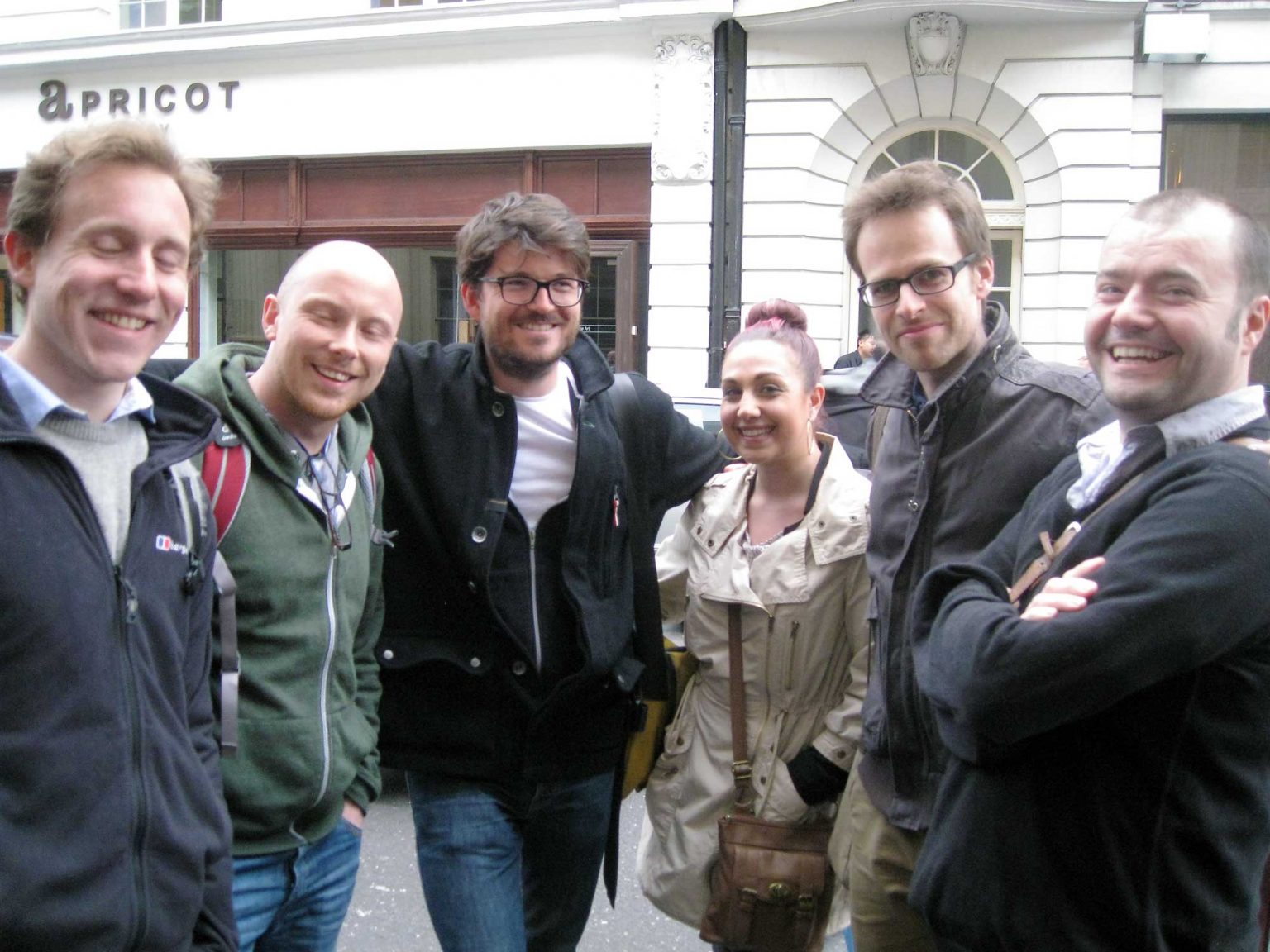
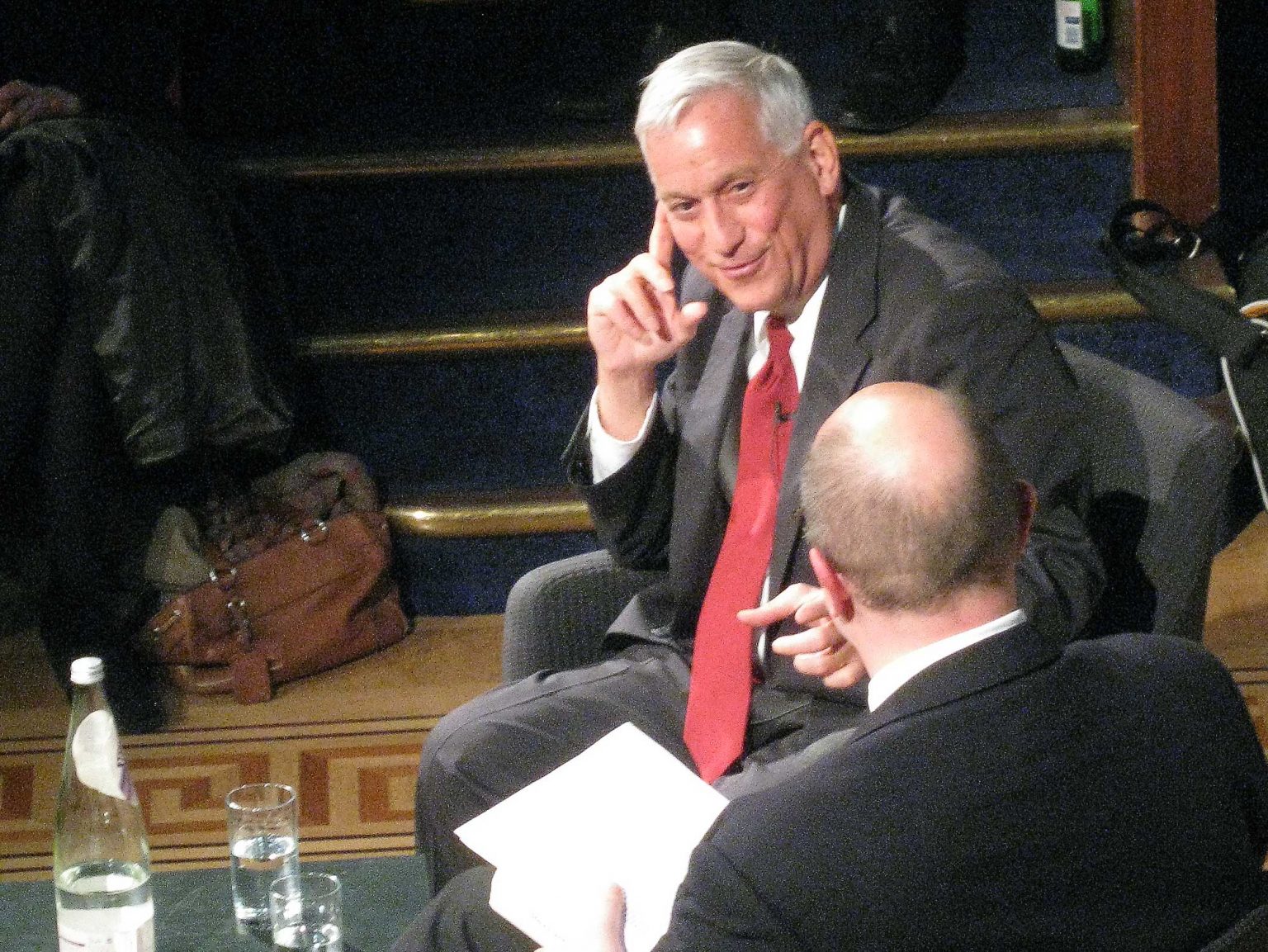
We were in the room where Faraday explained the correlation between electricity and magnetism, where Priestly isolated his exploding air (later named Oxygen), and where Rutherford explained the atom.
Today in that room was the biographer of both Albert Einstein and, subject of tonight’s talk, Steve Jobs. And, in the audience was Jimmy Wales, the co-founder of Wikipedia.

Walter Isaacson spoke (without notes) for the first half of the evening, telling tales from Jobs’ life and giving insights into the man. He spoke of how Jobs had no problem being described as Mercurial and how he used to mesmerise people into doing what he wanted, staring into their eyes and saying ‘don’t be afraid, you can do it’.
In the second half he was joined by Roger Highfield. In conversation (and via questions from the audience), Isaacson spoke more about Jobs’ vulnerabilities. He spoke of the pain he felt when first being ousted from Apple by people he regarded as father-figures. He talked of the obsessive perfectionism that destroyed the Next computer company but ultimately led to the successes of Apple, and how he changed his mantra to ‘great artists ship’.
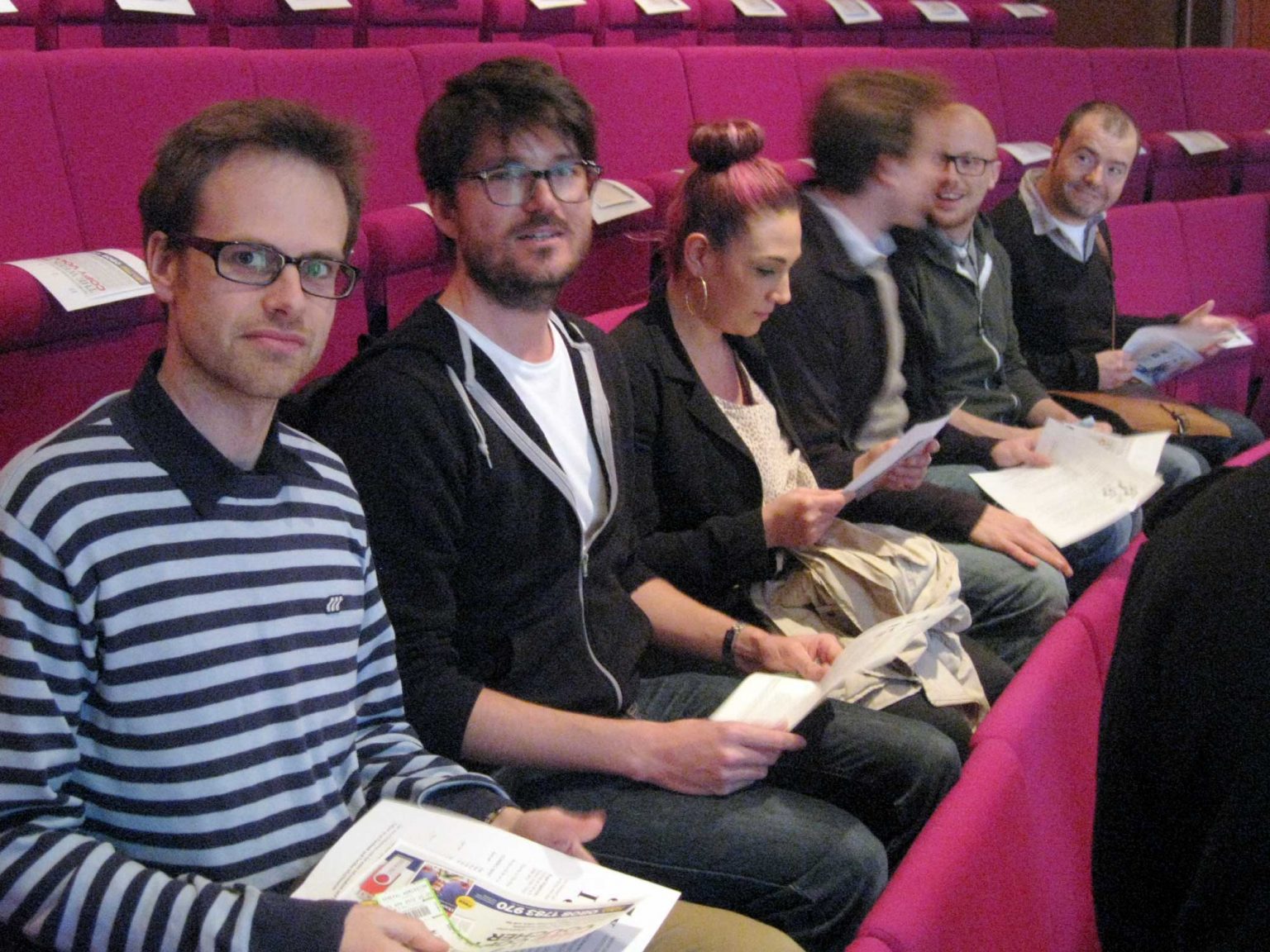
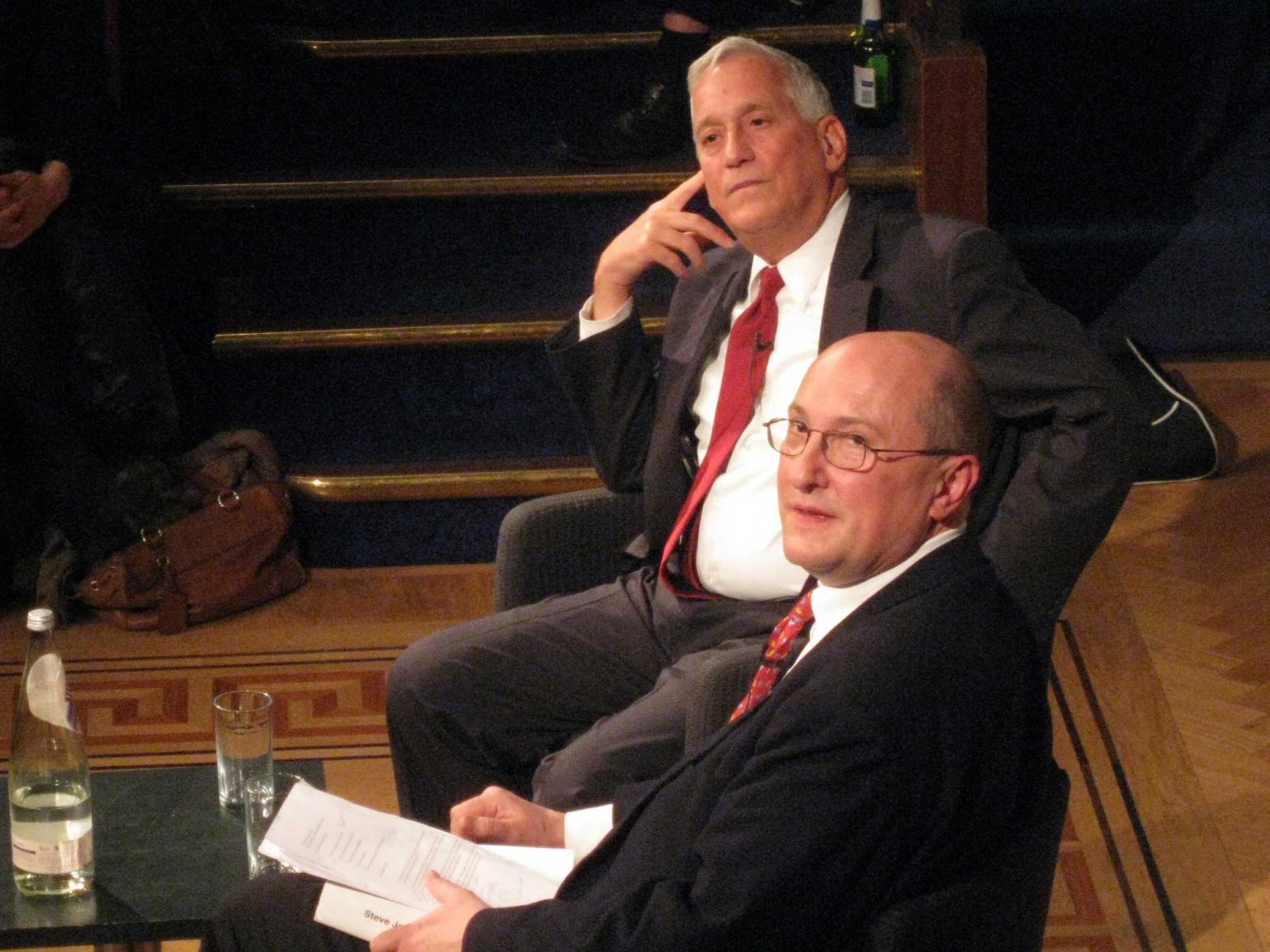
Asked if he thought that Jobs was a genius who would be remembered, Isaacson was careful to explain that Jobs was a visionary, his focus was on the perfection of the user experience, paring it down to the essentials and making them beautiful, marrying product and software in a way that others would never think of. Isaacson was irritated by Macolm Gladwell’s obituary of Jobs, where he described him as a ‘tweaker’, but he was more cross about the word than the sentiment.
We were in the room where Faraday explained the correlation between electricity and magnetism, where Priestly isolated his exploding air (later named Oxygen), and where Rutherford explained the atom.
We may have been in a venerable British institution but the night was all about the Americans. Walter Isaacson was a professional in the way only Americans seem to be – prepared, affable, charming, erudite, funny. He spoke about a man who continued the traditions of Edison and Ford, spotting opportunities and refining processes to create a world-beating company. And in the audience was Jimmy Wales, a man who has defined the internet age and the US dominance of the web, occasionally engaging with the real world but mostly fiddling with his iPhone and iPad.
